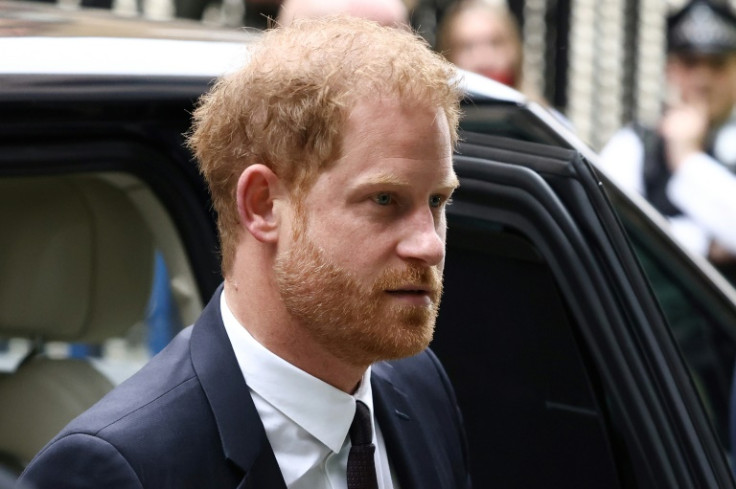Prince Harry To Seek Appeal After Losing Court Challenge Over Security

Prince Harry will seek to appeal a UK court ruling Wednesday that the government acted lawfully when it downgraded the level of his personal security when he visits Britain.
The youngest son of King Charles III launched the legal action after the British government told him in February 2020 that he would no longer be given the "same degree" of publicly-funded protection when in the UK.
Harry, the Duke of Sussex, sensationally relocated to North America in 2020 with his wife Meghan, eventually settling in California in the United States, and is no longer classified as a working royal.
High Court judge Peter Lane said in a 52-page judgement that the "bespoke process" devised for him by a committee which is under the remit of the interior ministry "was, and is, legally sound".
But a legal spokesman for Harry said he will try to turn to the Court of Appeal "to obtain justice". The court -- England's second highest -- must decide whether there are grounds to hear the case.
"The duke is not asking for preferential treatment, but for a fair and lawful application of... (the) rules, ensuring that he receives the same consideration as others," Harry's spokesman added.
The interior ministry said it was "pleased" with the judgment and was "carefully considering" its next steps.
"The UK government's protective security system is rigorous and proportionate," a ministry spokesperson added.
The prince told a hearing at London's High Court in December that security concerns were preventing visits back to Britain.
"The UK is my home. The UK is central to the heritage of my children," he said in a written statement read out by his lawyers.
"That cannot happen if it's not possible to keep them safe.
"I cannot put my wife in danger like that and, given my experiences in life, I am reluctant to unnecessarily put myself in harm's way too."
Harry's mother Princess Diana was killed in a high-speed car crash in Paris in 1997 as she tried to escape paparazzi photographers.
However, lawyers for the government rejected claims that he was "singled out" and treated "less favourably" or that a proper risk analysis was not carried out.
In May last year, a judge also sided with the government over its refusal to let him pay for specialist British police protection himself.
The interior ministry argued then that it was "not appropriate" for wealthy people to "buy" protective security when it had decided that it was not in the public interest for such taxpayer-funded protection.
London's Metropolitan Police also opposed Harry's offer on the grounds that it would be wrong to "place officers in harm's way upon payment of a fee by a private individual".
The latest ruling also revealed new details about a New York car chase last May involving paparazzi that Harry and Meghan described as "near catastrophic".
The New York Police Department (NYPD), the city's mayor and a taxi driver who briefly transported the couple all subsequently downplayed the danger and duration of the pursuit.
However, a December 2023 internal NYPD letter from its intelligence chief disclosed to the High Court said a thorough review of the incident had concluded "that the behaviour in question was reckless".
Lane's ruling said "the investigation had found reckless disregard of vehicle and traffic laws and persistently dangerous and unacceptable behaviour on the part of paparazzi during the night in question".
It also noted "there was sufficient evidence to arrest two individuals for reckless endangerment".
The legal action over his personal security is one of various lawsuits Harry has pursued in recent years in Britain, primarily concerned with alleged phone hacking by newspapers.
Earlier this month, he settled a long-running legal claim against Mirror Group Newspapers (MGN).
The prince is also bringing legal action against the publisher of the Daily Mail, while he and actor Hugh Grant are also suing News Group Newspapers (NGN), part of Rupert Murdoch's global media empire.
© Copyright AFP 2024. All rights reserved.





















